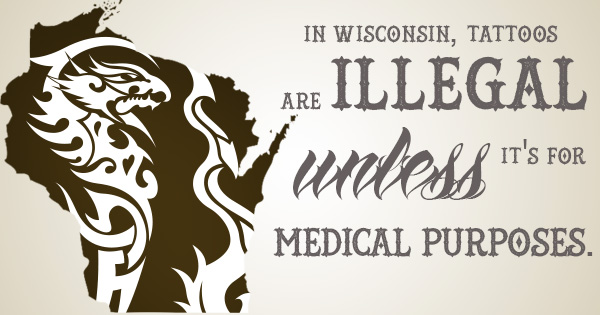
There are three reasons why many attorneys often use legislative intent services. First, it’s because legislative history research can often be an exhaustive, laborious process. Second, many legal statutes use Legal English, which is tough to understand, and just about impossible for the everyday citizen to comprehend, because of its unusual phrasing and lack of punctuation. Thirdly, it’s because many of those hard-to-understand legal statutes seem to lack any semblance of legislative intent.
To get a better idea of just how strange U.S. law books can be, take a look at some of the medical laws doctors have to follow. Here are a just a few of the weirder ones.
In Wisconsin, tattoos are illegal… unless it’s for medical purposes.
Wisconsin has a legal statute that makes the act of engaging in the practice of tattooing illegal. However, there is one exception. Tattooing is allowed for “medical purposes by a person licensed to practice medicine or osteopathy in the state.” So before you get “MOM” on your bicep, make sure you get a doctor’s note first.
In Arizona, it’s illegal to hand out or sell placebos.
In Arizona, there’s a legal statute stating that it is illegal to manufacture, distribute, or possess with intent to distribute an imitation-controlled substance or fake prescriptions and over-the-counter medications. In other words, it’s illegal to sell placebos. Although the law is likely meant to prevent counterfeit drugs from being sold, the legal statute’s vague wording can imply that it’s illegal to hand out placebos, which is why a healthcare practitioner “acting in the course of their professional practice” won’t be liable for breaking this particular law.
In Indiana, prayer is an acceptable form of medicine for dependents.
“A person who knowingly or intentionally fails to provide support to the person’s dependent child commits nonsupport of a child, a Class D felony,” says an Indiana law. However, the person accused is not guilty of a felony if he or she provided the dependent with medical treatment in the form of prayer.
There are many a strange legal statute out there. If you know of any others, feel free to share in the comments.
